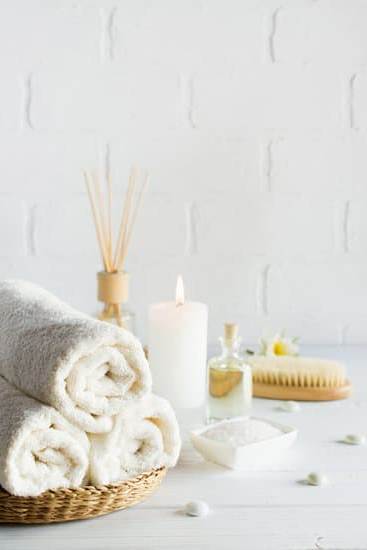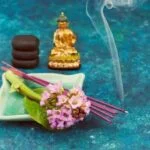Aromatherapy has gained popularity in recent years as a natural and holistic approach to health and wellness. The use of essential oils, derived from plants, is at the core of this practice. Essential oils are known for their powerful scents that can impact mood, emotions, and even physical well-being. But what do the scents of essential oils do for aromatherapy? Understanding the science behind how these fragrances work is key to unlocking their therapeutic benefits.
Essential oils have been used for centuries in various cultures for their medicinal and therapeutic properties. They are extracted from different parts of plants through processes like distillation or cold pressing, resulting in highly concentrated oils that carry the plant’s essence and fragrance. When these essential oils are inhaled or applied to the skin during aromatherapy practices, they interact with the olfactory system and limbic system in the brain, triggering various physiological responses.
The power of scent cannot be underestimated when it comes to aromatherapy. Research has shown that different fragrances can elicit specific responses in the brain, influencing mood, emotions, and even cognitive function. This is why selecting the right essential oils for different purposes is crucial in creating effective aromatherapy blends. By understanding how scent affects our brains, we can harness the healing potential of essential oils to promote overall well-being and relaxation.
The Science Behind Aromatherapy
Aromatherapy, the practice of using essential oils to enhance physical and psychological well-being, has been around for centuries. Essential oils are volatile plant extracts that capture the plant’s scent and flavor. But what do the scents of essential oils do for aromatherapy? The answer lies in the science behind how essential oils work.
Essential oils work through inhalation or topical application. When inhaled, the scent molecules travel through the nasal passages and interact with olfactory receptors. These receptors then send signals to the limbic system, known as the emotional center of the brain. This connection is what makes aromatherapy so effective in influencing mood and emotions.
To better understand how essential oils work, it’s important to know that each oil has its own unique chemical composition. For example, lavender essential oil contains linalool and linalyl acetate, which have calming properties. On the other hand, peppermint oil contains menthol, which can invigorate and energize. The specific compounds in each oil determine its therapeutic effects when used in aromatherapy.
Incorporating essential oils into your daily routine can help promote relaxation, reduce stress levels, improve focus, and uplift your mood. Whether diffusing oils in a room, adding a few drops to a bath, or using them in massage therapy, the scents of essential oils play a significant role in enhancing overall well-being through aromatherapy. Explore different oils and blends to find what works best for you and enjoy the benefits they bring to your mind and body.
Understanding the Power of Scent
Aromatherapy has been used for centuries as a natural way to promote healing and overall well-being. The scents of essential oils play a crucial role in this practice, as they have the power to affect the brain and emotions in profound ways. But what do the scents of essential oils do for aromatherapy? The answer lies in the science of how fragrance impacts the brain.
When we inhale the aromatic compounds found in essential oils, they travel through our olfactory system to the limbic system of the brain, which is responsible for emotions, memories, and behavior. This direct pathway allows the molecules in essential oils to have immediate effects on our mental and emotional state. For example, lavender essential oil is known for its calming properties and can help reduce stress and promote relaxation when inhaled.
Different scents can trigger different responses in the brain – some may uplift your mood, while others may help you focus or alleviate anxiety. This is why choosing the right essential oils for aromatherapy is crucial in achieving desired therapeutic effects. By understanding how fragrance affects the brain, we can harness the power of scent to improve our emotional well-being and overall quality of life.
The Top Essential Oils Used in Aromatherapy and Their Benefits
When it comes to aromatherapy, essential oils play a crucial role in providing therapeutic benefits. Essential oils are highly concentrated plant extracts that capture the scent and essence of the plant they are derived from. These oils are used in aromatherapy due to their various properties that can promote physical, emotional, and mental well-being. So, what do the scents of essential oils do for aromatherapy?
One of the most popular essential oils used in aromatherapy is lavender oil. Lavender oil is known for its calming and relaxing properties, making it an excellent choice for relieving stress and anxiety. Inhaling the soothing scent of lavender can help promote relaxation and improve sleep quality. Additionally, lavender oil has anti-inflammatory and pain-relieving properties, making it beneficial for alleviating headaches and muscle tension.
Another commonly used essential oil in aromatherapy is peppermint oil. Peppermint oil is invigorating and refreshing, making it ideal for boosting energy levels and improving focus. The scent of peppermint oil has been shown to enhance mental clarity and alertness, making it a great choice for combating fatigue or improving concentration during work or study sessions. In addition to its stimulating properties, peppermint oil also has analgesic effects that can help relieve headaches and migraines when used in aromatherapy treatments.
| Essential Oil | Benefits |
|---|---|
| Lavender Oil | Calming, Relaxing; Relieves Stress and Anxiety; Anti-inflammatory; Pain-relieving |
| Peppermint Oil | Invigorating; Refreshing; Boosts Energy Levels; Improves Focus; Analgesic effects – relieves headaches & migraines |
How Different Scents Impact Mood and Emotions in Aromatherapy
Aromatherapy is not only about relaxation and stress relief but also about how different scents can impact mood and emotions. Understanding the influence of various fragrances on our mental and emotional well-being is essential in maximizing the benefits of aromatherapy. The captivating scents of essential oils play a crucial role in enhancing our overall sense of wellness.
The Psychological Impact of Aromas
The sense of smell is closely linked to the emotional center of the brain, known as the limbic system. Different scents can evoke past memories, trigger specific emotions, or even alter our cognitive functions.
For example, the calming aroma of lavender can help reduce anxiety and promote a sense of tranquility, while the invigorating scent of peppermint can boost energy levels and improve focus. By understanding how various aromas affect our mood, we can harness the power of essential oils to enhance our emotional well-being.
Popular Essential Oils for Mood Enhancement
There are several essential oils renowned for their mood-enhancing properties in aromatherapy. Citrus oils like lemon and sweet orange are known for their uplifting and energizing effects, making them ideal choices for combating feelings of lethargy or low spirits.
Floral scents such as rose and geranium are cherished for their ability to promote relaxation and soothe negative emotions like sadness or grief. By incorporating these essential oils into your aromatherapy practice, you can create a harmonious environment that supports your emotional health and well-being.
Creating a Personalized Aromatherapy Routine
To harness the full potential of aromatherapy for mood enhancement, it’s important to personalize your essential oil blends according to your unique preferences and needs. Experimenting with different combinations of scents can help you identify which aromas resonate most with you and have the greatest impact on your mood.
Whether you’re seeking calmness, joy, or rejuvenation, incorporating the right essential oils into your daily routine can be a transformative experience that uplifts your spirits and nurtures your emotional balance.
Using Essential Oils for Stress Relief and Relaxation
Benefits of Essential Oils for Stress Relief
Essential oils have long been used for their calming and relaxing properties, making them a popular choice for stress relief in aromatherapy. The soothing scents of essential oils can help create a sense of calm and relaxation, promoting emotional well-being and reducing feelings of anxiety. Oils such as lavender, chamomile, and bergamot are known for their stress-relieving effects and can be diffused or applied topically to help unwind after a long day.
How Aromatherapy Promotes Relaxation
Aromatherapy utilizes the therapeutic benefits of essential oils to impact the emotional and physical well-being of individuals. The unique scents of essential oils interact with the olfactory system in the brain, triggering responses that can help reduce stress levels and promote relaxation. When inhaled or applied to the skin, these aromatic compounds are believed to influence neurotransmitters in the brain, such as serotonin and dopamine, which play a role in regulating mood and emotions.
Creating Relaxing Essential Oil Blends
Combining different essential oils can enhance their individual properties and create powerful relaxation blends. For example, blending lavender with cedarwood or ylang-ylang can amplify their calming effects, while adding citrus oils like orange or lemon can provide an uplifting twist to a relaxation blend.
Experimenting with various combinations allows individuals to customize their aromatherapy experience to suit their preferences and promote optimal relaxation. Understanding what do the scents of essential oils do for aromatherapy helps tailor specific blends for stress relief and relaxation purposes.
DIY Aromatherapy Blends for Common Health Concerns
Aromatherapy has been used for centuries as a natural way to promote health and well-being. Essential oils, extracted from plants through distillation or cold pressing, are the main components used in aromatherapy blends. These oils are highly concentrated and contain various therapeutic properties that can address common health concerns such as headaches, insomnia, anxiety, and more.
Creating your own DIY aromatherapy blends can be a fun and rewarding experience. By combining different essential oils with complementary properties, you can tailor the blend to suit your specific needs. For example, lavender oil is known for its calming and relaxing effects, making it an excellent choice for promoting sleep and reducing stress. Peppermint oil, on the other hand, is invigorating and can help alleviate headaches and improve focus.
When creating DIY aromatherapy blends for common health concerns, it’s important to consider the synergy between different essential oils. Combining oils that work well together can enhance their individual benefits and create a more potent blend.
Additionally, paying attention to the proper dilution ratio is crucial to ensure safe use of essential oils, especially when applying them topically or using them in a diffuser. Experimenting with different combinations and concentrations will allow you to find the perfect blend that works best for you.
Incorporating DIY aromatherapy blends into your daily routine can provide natural relief for various health issues while also promoting overall wellness. Whether you’re looking to unwind after a long day, boost your mood in the morning, or alleviate discomfort from minor ailments, there’s an essential oil blend out there that can help. By understanding the benefits of different scents and experimenting with personalized blends, you can harness the healing power of essential oils through aromatherapy at home.
The Importance of Quality and Purity in Essential Oils for Effective Aromatherapy
Aromatherapy relies heavily on the use of essential oils to promote overall wellness and healing. However, the effectiveness of aromatherapy is greatly influenced by the quality and purity of the essential oils being used. High-quality essential oils are essential for achieving the desired therapeutic benefits in aromatherapy practices.
The process of extracting essential oils from plants can vary, leading to differences in quality and purity among products. It is crucial to choose essential oils that are pure and free from synthetic additives or contaminants to ensure their efficacy in aromatherapy. The purity of essential oils directly impacts what do the scents of essential oils do for aromatherapy, as any impurities can alter their therapeutic properties.
To determine the quality of essential oils for aromatherapy, look for reputable brands that prioritize sourcing plants from their natural habitats, using ethical and sustainable practices. Additionally, check for third-party testing and certifications to guarantee the purity and authenticity of the essential oil. By selecting high-quality essential oils, you can experience the full benefits of aromatherapy and harness the power of scent for improved physical, emotional, and mental well-being.
| Essential Oils Benefits | Effects on Aromatherapy |
|---|---|
| Lavender | Promotes relaxation and stress relief |
| Peppermint | Provides energy boost and mental clarity |
| Chamomile | Induces calmness and aids in sleep quality |
Tips for Incorporating Aromatherapy Into Your Daily Routine for Overall Wellness
Aromatherapy is a holistic healing treatment that uses natural plant extracts, known as essential oils, to promote overall wellness. These aromatic compounds are believed to have various therapeutic effects on the body and mind when inhaled or applied topically. Incorporating aromatherapy into your daily routine can be a simple yet effective way to enhance your well-being and improve your quality of life.
Here are some tips for incorporating aromatherapy into your daily routine for overall wellness:
1. Start Your Day with Scent: Begin your morning by diffusing uplifting essential oils like citrus scents such as lemon or orange to boost energy levels and invigorate your senses.
2. Create a Relaxing Bedtime Routine: Wind down in the evenings by using calming essential oils like lavender or chamomile in a bedtime diffuser blend to promote relaxation and improve sleep quality.
3. Use Aromatherapy Throughout the Day: Carry a personal inhaler or rollerball with a blend of essential oils that help you stay focused and alert during work hours, such as peppermint or rosemary.
Incorporating aromatherapy into your daily routine allows you to benefit from the therapeutic properties of essential oils consistently throughout the day, supporting your physical, emotional, and mental well-being. Experiment with different scents and application methods to discover what works best for you in harnessing the healing power of essential oils through aromatherapy.
Conclusion
In conclusion, the scents of essential oils play a crucial role in the practice of aromatherapy, offering a range of benefits for both physical and emotional well-being. Aromatherapy harnesses the therapeutic properties of these oils to promote relaxation, reduce stress, improve mood, and enhance overall wellness. The unique scents of essential oils have a direct impact on our brain and emotions, making them a powerful tool for self-care and healing.
Through the science behind aromatherapy, we understand that essential oils work by stimulating the olfactory system in the brain, triggering various responses that can affect our mood, emotions, and even physical health. Different scents have different effects on the body and mind, allowing us to tailor our aromatherapy practices to suit our individual needs and preferences.
Whether it’s using lavender for relaxation, peppermint for invigoration, or citrus for mood enhancement, there is a wide range of essential oils available to choose from.
As we continue to explore the power of scent in aromatherapy, it becomes evident that incorporating quality and purity in essential oils is essential for effective results. By choosing reputable sources and ensuring proper dilution and application methods, we can fully experience the benefits of aromatherapy in our daily lives.
So next time you reach for an essential oil blend to unwind after a long day or boost your energy levels in the morning, remember the transformative effects that these scents can have on your well-being.
Frequently Asked Questions
What Do Different Aromatherapy Scents Do?
Different aromatherapy scents have various effects on the mind and body. For example, lavender is known for its calming properties, while citrus scents like lemon or orange are uplifting and energizing. Peppermint is often used to boost focus and alleviate headaches, while eucalyptus can help with respiratory issues.
How Are Essential Oils Used in Aromatherapy?
Essential oils are commonly used in aromatherapy by inhaling the scent through diffusers or applying them topically after dilution with carrier oils. They can also be added to bathwater or used in massage oils to promote relaxation and overall well-being. Some people even use essential oils for household cleaning due to their natural antibacterial properties.
What Are the Benefits of Different Essential Oils?
The benefits of different essential oils vary depending on their properties. For example, tea tree oil has antifungal and antibacterial qualities, making it ideal for skincare concerns like acne or athlete’s foot.
Lavender oil is renowned for its calming effects, reducing stress and anxiety levels. Lemon oil is often used to uplift mood and improve concentration, while peppermint oil can help with digestion issues such as nausea or indigestion.

Are you looking for a natural way to improve your health and wellbeing?
If so, aromatherapy may be the answer for you.





